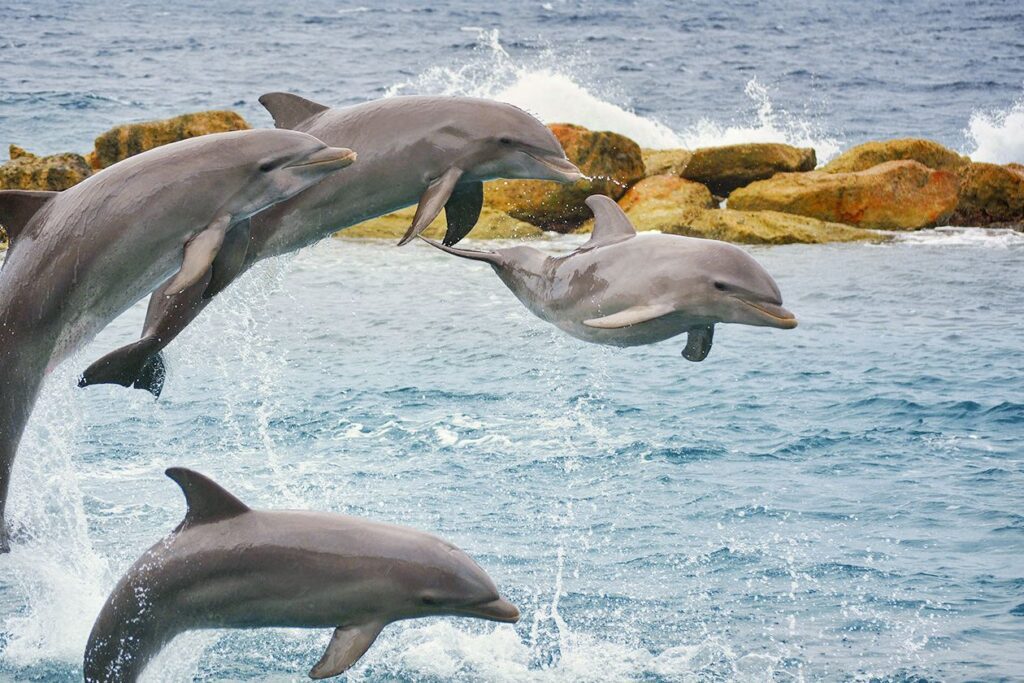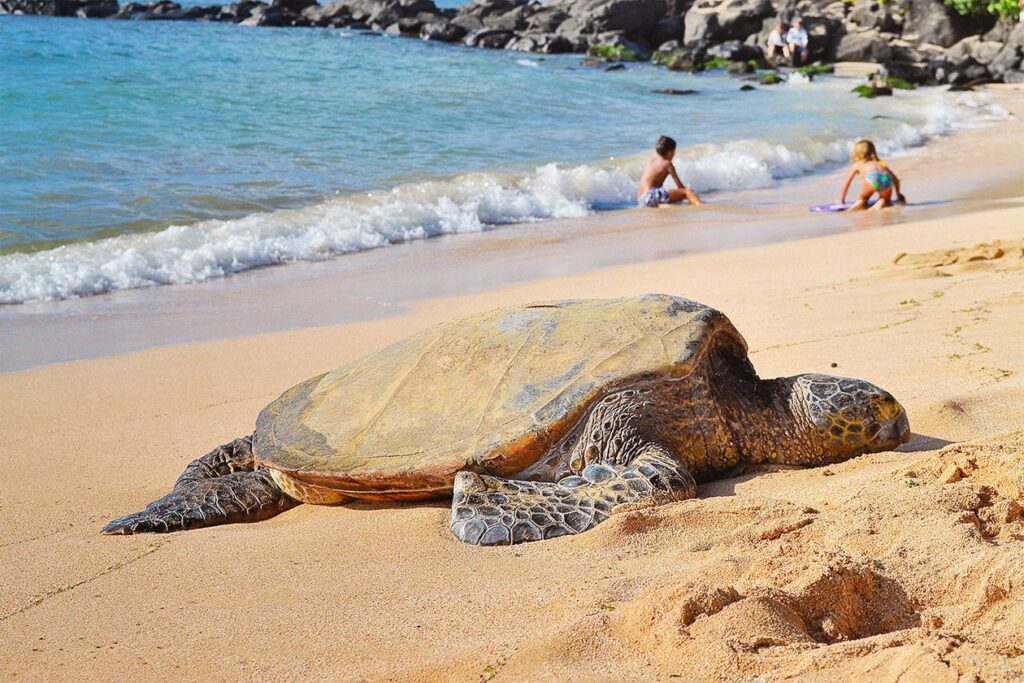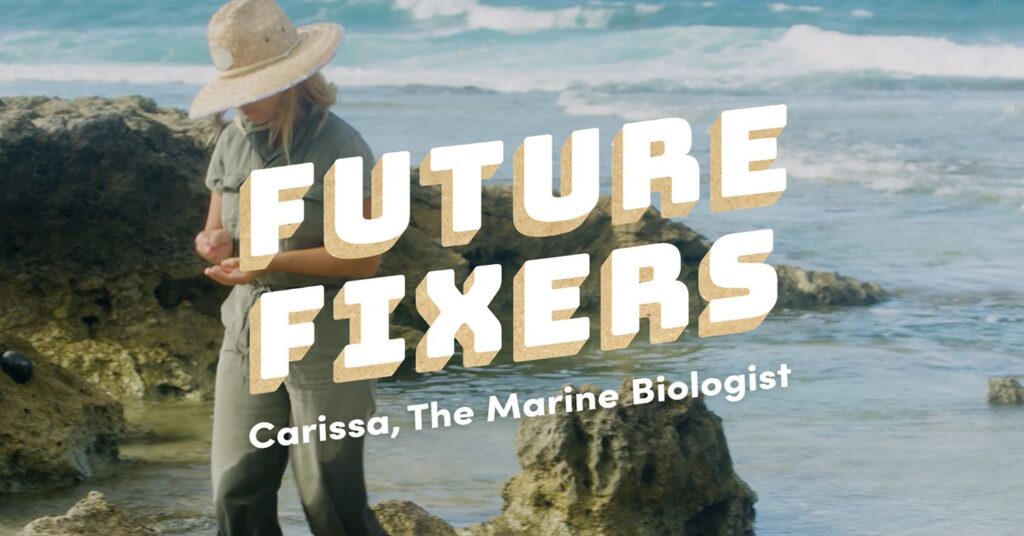The world’s oceans are in trouble, and that’s bad news for, well, all of us. Warming, pollution, and rising seas are wreaking havoc on land and sea populations alike. But the solution for some of the ocean’s biggest problems lie in nature. Mangrove forests and coral reefs, for example, can absorb high levels of carbon dioxide. That’s why Carissa Cabrera is rallying for more conservation funding and political action. But the Hawaii-based marine biologist also thinks it’s vital that the general public understand climate solutions too, as well as their individual role in protecting the ocean.
Cabrera is dedicated to improving science communication and finding ways to help people emotionally connect with environmental problems. We sat down with the biologist to talk about why the media is a key tool for motivating people, how politicians can step up to protect the ocean, and what inspires her to keep going.

LIVEKINDLY: Growing up away from the beach in Arizona, a lot of your love for the ocean came from the things you had access to, including documentaries like The Cove and Blackfish. You’re not alone: Last year, we saw Seaspiracy inspire many to reduce their fish consumption! Why are documentaries such a powerful tool for influencing consumer behavior?
Carissa Cabrera: Nowadays, alongside social media, documentaries are where most people get their environmental information. They’re so powerful because they’re able to tell a story that evokes emotion, and that’s something that is always removed from science. In documentaries, the topic becomes humanized. I think we saw that with Seaspiracy, and we definitely saw that with The Cove. Yes, there’s the shock factor of learning something you didn’t know. Maybe you’re not pleased with the information you’re hearing. But there’s also this inspiration that happens at the end, when you’re shown the actions and behaviors you could take to help. I absolutely think documentaries are the most powerful tool we have when it comes to helping the planet.
LIVEKINDLY: Your nonprofit, the Conservationist Collective, is working to utilize digital storytelling and media to motivate individuals to do their part for the planet. What sort of projects are you working on right now?
Cabrera: One is our podcast: Sustainability & The Sea. We sit down with people who are working to save the ocean in different areas, and they tell us their story. The goal is to help inspire listeners to find their unique role. We also had a National Geographic grant, which we used to teach kids about the ocean and climate change. We also work with media companies to help get information out there about behaviors that can help save the ocean. I feel like it’s a trailblazing time. The social media world is opening up so much.
There many win-win solutions in the ocean. If you save a species, you’re preserving an ecosystem.
Carissa Cabrera, Marine Biologist
LIVEKINDLY: Ocean conservation is personal to people like you but it’s political as well. What action would you like to see governments and politicians actually take?
Cabrera: We have so many climate solutions in the ocean. People are trying to scale them right now. If we could get governments and elected officials and leaders to prioritize funding, I think we would have an amazing shot at solving a lot of the challenges of climate change. There are so many win-win solutions when it comes to the ocean. Because if you save a species, you’re also preserving the ecosystem and the food chain that the species is a part of. It’s almost like a ripple of waves that ends up helping the rest of the ocean, too.
LIVEKINDLY: What’s an example of somewhere ocean conservation is working really well? Is there a place we can learn from?
Cabrera: There’s a lot of indigenous knowledge about proper management in the ocean that can help solve a lot of challenges. A good example is in Hawaii, we have a monument called Papahānaumokuākea. The government and native Hawaiians are working together to properly manage it. It’s the largest group protected area in the world. And it is thriving. It’s a great case study for things that we can do in other parts of the world too.
LIVEKINDLY: Science is renowned for being male-dominated, do you find there are unique challenges to being a woman in this field?
Cabrera: It can be hard to speak out on these things due to the fear of retaliation or criticism and stuff like that, but it’s universal. What I’ve noticed is that it’s women actually doing the intense work, then it often gets completely rewritten by a man after. But I think that’s something that women can relate to in many different fields. The patriarchy is all around us. I can also never choose what to wear out in the ocean. I need to be able to balance being professional, being functional, working alongside people who I want to take me seriously. We all just wear leggings and rash guards. It’s terrible. It’s not functional. But I don’t want to be hyper-sexualized in a professional setting. I did a women’s workshop and all of them said the same thing. That’s the worst part.

LIVEKINDLY: How would you like to see marine biology evolve?
Cabrera: When I think about my ideal future for marine biology, I think of more participation from women and from people of color. There’s a lot of inequality. Because of the way that acquired marine biology experience is structured, most of it is unpaid, which is a privilege that most people can’t afford. I would love there to be more equity, more funding.
LIVEKINDLY: It’s clear that preserving and protecting the ocean is your passion in work and in life. But it can’t be easy – marine life is so under threat from fishing, from oil, from plastic pollution. What inspires you to keep going?
Cabrera: I love what I do, but I struggle with knowing how many parts of the planet need helping. Right now, I’m part of a project that is helping to raise financial backing for conservation in Hawaii, because it’s something we really need here. If it passes, it’s probably going to be the proudest moment in my career. But when I think about the moments that have stuck out to me—one time, a sea turtle was hooked, and we got to free it. It was very elaborate and physically exhausting, but I knew that if we didn’t do it, it wasn’t going to survive. Knowing that the reason something is better because of me is the best part of my job.
Find out more about Cabrera and her work with the Conservationist Collective here.


